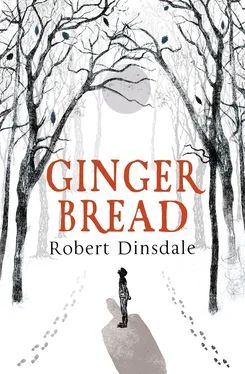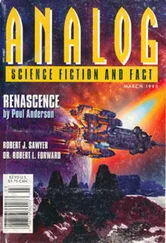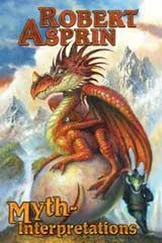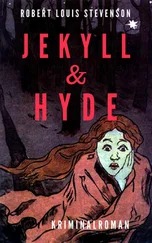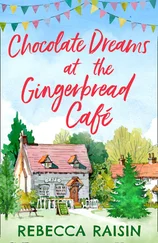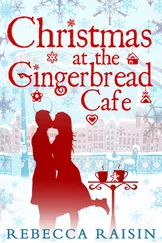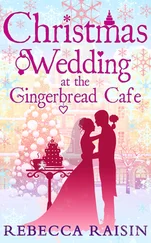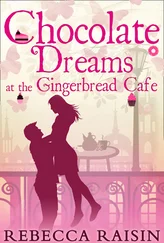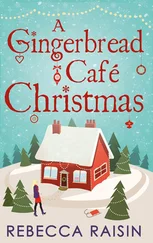‘No,’ scowls Yuri, scoring another tree into his map.
‘Why no?’
‘Because,’ he says, poking a pencil in Mr Navitski’s direction, ‘he said not to do my papa, because, in the war, the police were no good. But how can a police be no good? Police are there to help.’
Yuri lifts his map and cups it around his mouth. ‘I’m sorry about your mama.’
It is an incredible thing to hear. Such a little thing, but the boy’s lips start to tremble, his hands hot and slippery as a fever.
‘What’s it like, living with your papa?’
Any words the boy might have would come out like sobs, so he swallows them.
‘What did your papa do in the war?’
‘Is it the wars of winter?’ the boy finally says.
Yuri considers it. ‘I think so. In the pictures, it’s awfully cold.’
It is dark by end of day. Outside, mothers cluck around the gates and, as the boy ventures out, he feels Mr Navitski’s eyes boring into his back. He stops to watch, because even Yuri, with a sleeve encrusted in spittle and bits of dinner, has a mama to run to. In the gloom at the end of the schoolyard, Yuri’s mother scolds him, strikes him once around the ear and takes his hand to lead him away.
Grandfather is waiting on the other side of the road, prowling up and down by the car like a man in a cage. The boy takes flight, not stopping to look as he barrels over the road to find him.
‘Papa!’
Grandfather looks up. ‘I didn’t know when this all ends,’ he says, with what must be deep relief.
‘Have you been waiting?’
‘A little.’
‘I’m sorry, papa. Are you cold?’
He beams, ‘Well, they don’t let you build cookfires in the middle of the street, do they? Jump in. It’s getting dark.’
The boy’s eyes drift to the skies. Clouds have gathered, but a half moon still shines. ‘It’s dark already, papa.’
‘Not this,’ Grandfather grins. ‘I mean real dark. These people don’t know real dark, do they? But we do. Your papa and you know about real dark. Woodland dark.’
The boy slides up front, and the car complains bitterly as Grandfather rolls it into the traffic.
‘Where did you get that shirt?’
It is only now that he realizes he is still wearing the shirt Mr Navitski found for him.
‘I’m sorry, papa.’
‘Why sorry?’
Grandfather slows the car down to a halt, even though they are in the middle of a road, approaching an intersection where dark tenements huddle together.
‘I don’t know.’
‘Don’t ever say sorry, boy.’
After that they drive in silence. The boy wants to ask: what did you do today, papa? Were you lonely on your own? Did you talk to Madam Yakavenka or go to the shop and talk to the woman at the counter? Did you get a bread from the bakery or are you filled up with cattail? But he says nothing. He wipes at the condensation forming on the windows with his sleeve, and tries to make out by streetlights where he might be, how close to home.
It is only when he wipes the window clear for a fifth time that he realizes they are leaving the town. The streetlights have grown infrequent, and in rags the trees grow more misshapen, not tamed by human hands like the ones that sprout from concrete along the city streets.
‘Aren’t we going back to the tenement, papa?’
‘But what’s at the tenement?’
‘Well, nothing …’
‘So why would we want to go back?’
This time, the way into the wild is familiar. They draw off from the main road, into the caverns of ice, and stutter on until they have reached the old resting spot.
‘Are you warm enough in that shirt?’
The boy shakes his head.
‘There’s the eiderdown just there. But I found you a coat. There’s a cellar, under your baba’s house. There’s a trapdoor outside, near the kitchen door.’
‘I have a coat at the tenement, papa. It’s the one mama got me.’
‘This one’s warmer.’
‘But it isn’t mine, is it?’
Grandfather stalks off, up and over the dead fire, loping like a hunchback into the trees.
‘It’s in the family,’ he says.
Before they reach the ruin, the boy can see smoke curling out of the chimneystack. He can see the chimneystack too, no longer a crumbled mound of bricks but now excavated and piled high, churning clouds out into the night with the same relentlessness as the factories through which they have come. From the top of the hill, he can smell the woodsmoke.
Grandfather leads him down the dell and stops to lift a simple latch on the wooden door, no longer slumped and smashed into place, but hanging – if awkwardly – from hinges once again. When he opens the door, winter tries to rush in, but waves from the hearthfire try to rush out. A battle is fought in the open doorway, and through that prickly frontier the boy and Grandfather go.
‘Papa,’ the boy begins, begging a smile, ‘what happened?’
Grandfather shrugs, as if to hide the smile that is flourishing in the corners of his lips. ‘I found some … bits and pieces. This old house, it remembers me, boy.’
In the living room there are rugs. They do not extend quite to the edges as a carpet might, but they are deep and soft under his feet, and run all the way to the hearth, where a fire surges and rolls. Ranged around the hearth are two armchairs with a little table between. All of the brambles that once clawed in to take back the house have been hacked and bundled up, and now hang on strings above the hearth, drying out for future kindling.
In the hearth sits the cast-iron pot, and in the cast-iron pot spits and crackles a bird. Cattail roots bob, white strands trailing like Baba Yaga’s hair, in the surface of the broiling snow-melt. Its smells lift, mingle with the woodsmoke, and reach out to tempt the boy.
He peers in the pot. ‘What is it, papa?’
‘It’s like a chicken.’
‘But what is it?’
‘A grouse.’
The boy looks again, breathing in deep aromas of wild grass and wet bark. ‘There are two birds here.’
‘One’s a starling.’
‘A starling?’
‘It’s been such a long time since I ate a starling. Shall we say goodnight to your mama, boy?’
The boy follows Grandfather through the kitchen. Here, too, everything has changed. One of the smashed windows is covered with boards, and all of the pots are stacked in piles. A bowl by the tin sink is filled with cattail roots and acorns and other roots the boy does not know, all of them ugly as unborn children. In another bowl sits a handful of nuts, and in another still dry, sprawling mushrooms that look as if someone has rolled and stretched them out.
‘Jew’s ears,’ says Grandfather, teasing one between thumb and forefinger.
‘Jew’s ears?’
‘Just don’t let your baba hear you call them that.’
Soaking up the heat of the hearthfire, the boy has forgotten how cold the winter night can get, and once outside he starts to shiver. Grandfather tells him to take a deep breath, they’ll only be a minute, and pads to the bottom of the garden. As he follows him, he looks back at the house. Grandfather has excavated the snow from the walls, and in the crater he can see the cellar trapdoor, hard wood and iron clasp.
‘See,’ says Grandfather, staring at the roots of mama’s tree. ‘I told you he’d be back. He’s done his schooling and now it’s time for dinner. I’m making him a bird. He won’t have tasted anything like it.’
While Grandfather is talking to whatever’s left of mama, the boy imagines her working her way up the roots, into the trunk of the tree. In the spring, perhaps there will be leaves, and in the way the veins of those leaves spread out and bring colour to the leaf, there will be an image of mama. In autumn the leaves will fall down and rot, and the tree will drink them up again, and that is how mama can live forever and always.
Читать дальше
